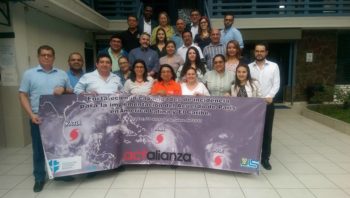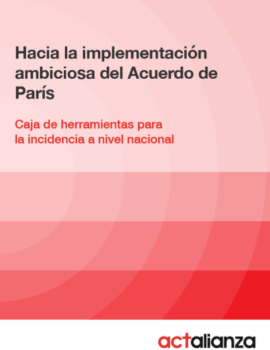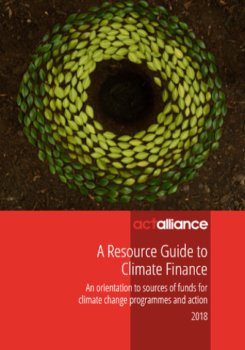ACT Alliance joins the Vatican and ecumenical partners to encourage global progress on climate change
The First Ecumenical Prayer for Creation will take place on August 31 and September 1 in Assisi, the city of Francis. The two-day event is the latest sign of momentum for environmental protection growing among leaders of Christian denominations.
Christians, who represent approximately one-third of all people on Earth, are increasingly uniting around specific initiatives to tackle the challenge of environmental degradation. The Season of Creation presents a unique moment to celebrate the faith and service of ACT Alliance members and ecumenical partners in prayer and action to care for creation.
During the prayer service, top representatives of the world’s Christian traditions will call the faithful to care for the Earth during the Season of Creation. They will also call for ambition at this December’s UN climate negotiations in Poland.
The Assisi event will open an annual global celebration of prayer and action to protect the Earth, the Season of Creation. The Season of Creation is supported by leaders of the world’s major Christian denominations. It will be observed with hundreds of hands-on events on six continents.
August 31, 17.30-19.30
- Events will take place in the Room of St. Francis’ Renunciation, to encourage reflection on the need for an ecological conversion.
- Remarks will be contributed by Fr. Bruno-Marie Duffé, Secretary of the Vatican’s Dicastery for Promoting Integral Human Development, Abp. Bernard Ntahoturi, representative of the Archbishop of Canterbury, Archim. Athenagoras Fasiolo, representative of the Ecumenical Patriarchate, and others.
September 1, 10.00
- Events will take place outside the Basilica of St. Francis.
- Greetings will be shared by H.E. Card. Angelo Bagnasco, President of the Council of Bishops’ Conference in Europe (CCEE), Rev. Christian Krieger, President of the Conference of European Churches (CEC), Fr. Mauro Gambetti, Guardian of the Sacred Convent, and others.
- Leaders will issue a joint statement. The reading of the joint statement will be followed by a performance and symbolic action by people who are most vulnerable, including people with disabilities, children, and migrants.
ACT Alliance will accompany Mons. Paolucci Bedini, Bishop of Gubbio, pilgrims, and vulnerable people to take the first steps on a pilgrimage to Gubbio, now in its 10th year, and symbolically send the spirit of St. Francis to join a pilgrimage to the COP24 climate negotiations.
A full program is available here, and the full list of participants is available here. The two-day event is being coordinated by the Bishop of Assisi, the Bishop of Gubbio, the Sacro Convento, and the Serafico Institute.
Events for the Season of Creation are coordinated by an ecumenical steering committee including ACT Alliance, the Global Catholic Climate Movement, World Council of Churches, Anglican Communion Environmental Network, Lutheran World Federation, A Rocha, Christian Aid, Lausanne/World Evangelical Alliance Creation Care Network, World Communion for Reformed Churches.
###
For media inquiries please contact Joanna Patouris, Climate Change Communications Coordinator, ACT Alliance, tel: +1647-971-5360, joanna.patouris@actalliance.org.

 La asamblea inaugural de ACT Alianza en Arusha, Tanzania, en 2010, resolvió que el cambio climático era una amenaza para la vida, los medios de vida y toda la creación. Como resultado, se identificó como una prioridad para el trabajo de incidencia de ACT Alianza a todo nivel. Desde entonces, ACT Alianza ha participado en muchas iniciativas de justicia climática, incluido el trabajo de incidencia y campañas en el contexto de la Convención Marco de las Naciones Unidas sobre el Cambio Climático (CMNUCC), así como en los niveles nacional y comunitario.
La asamblea inaugural de ACT Alianza en Arusha, Tanzania, en 2010, resolvió que el cambio climático era una amenaza para la vida, los medios de vida y toda la creación. Como resultado, se identificó como una prioridad para el trabajo de incidencia de ACT Alianza a todo nivel. Desde entonces, ACT Alianza ha participado en muchas iniciativas de justicia climática, incluido el trabajo de incidencia y campañas en el contexto de la Convención Marco de las Naciones Unidas sobre el Cambio Climático (CMNUCC), así como en los niveles nacional y comunitario.
